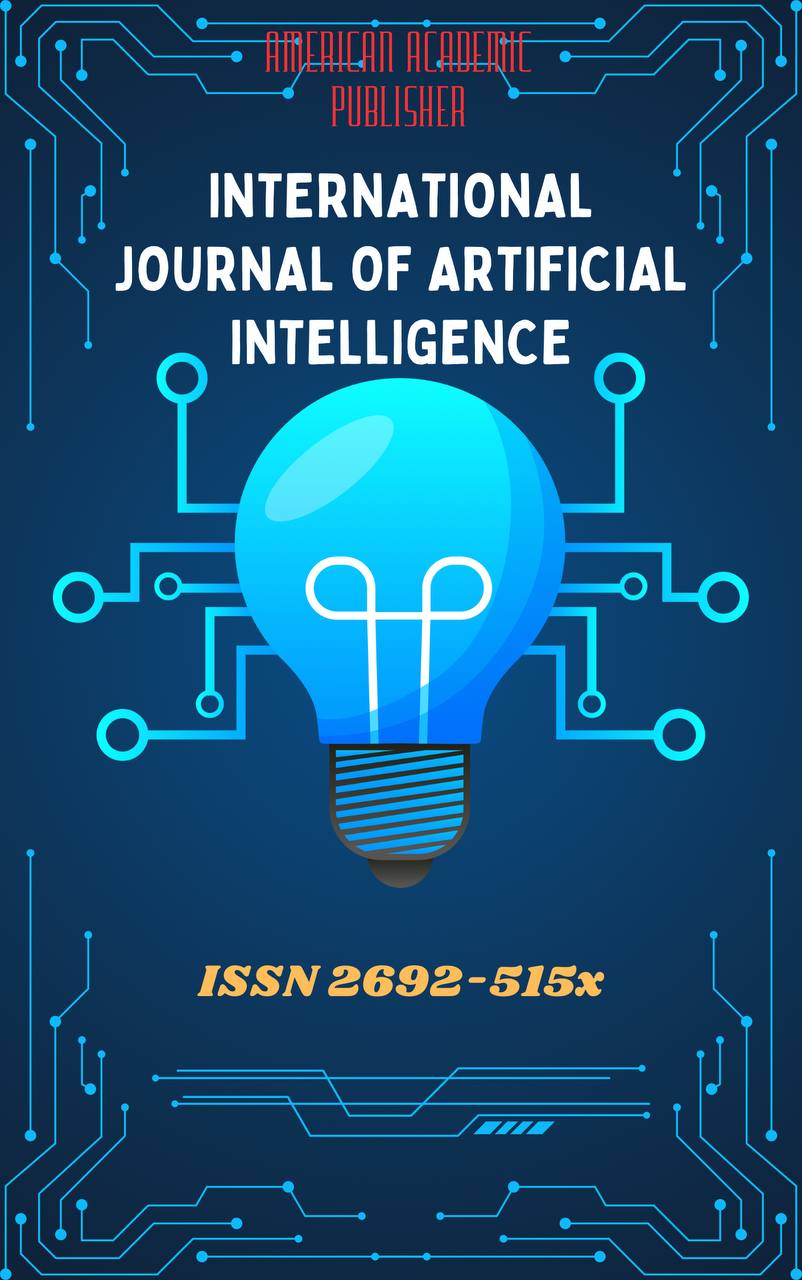 Articles
| Open Access |
Articles
| Open Access | EVIDENCE-BASED MANAGEMENT OF ACUTE RHINOSINUSITIS WITH HERBAL PRODUCTS
Samandarova Azizabonu , Bukhara University of innovative education and medicine.Abstract
The overuse of antibiotics for unjustified indications such as the management of acute uncomplicated rhinosinusitis has contributed to the emergence of antibiotic-resistant strains of bacteria and prompted the need for alternative treatments. This review assesses the quality of evidence for the management of acute rhinosinusitis with herbal products, with the goal of positioning them among other treatments and identifying future research directions. Searches with Nacetylcysteine and mometasone furoate nasal spray (MFNS) were performed to compare the strength of evidence of herbal products to these conventional products, which are indicated for acute rhinosinusitis.
Keywords
Acute rhinosinusitis, Herbal product, Conventional treatment, Antibiotic
References
[1]. Fokkens WJ, Lund VJ, Mullol J, Bachert C, Alobid I, Baroody F, et al. EPOS2012: European position paper on rhinosinusitis and nasal polyps 2012. Asummary for otorhinolaryngologists. Rhinology. 2012;50:1–12. https://doi.org/10.4193/Rhino50E2.
[2]. Worrall G. Acute sinusitis. Can Fam Physician. 2011;57:565–7.
[3]. Orlandi RR, Kingdom TT, Hwang PH. International consensus statement on
allergy and rhinology: rhinosinusitis executive summary. Int Forum Allergy
Rhinol. 2016;6(Suppl 1):S3–21. https://doi.org/10.1002/alr.21694.
[4]. Sharma P, Finley R, Weese S, Glass-Kaastra S, McIsaac W. Antibiotic
prescriptions for outpatient acute rhinosinusitis in Canada, 2007-2013. PLoS
One. 2017;12:e0181957. https://doi.org/10.1371/journal.pone.0181957.
[5]. Eisenberg DM, Davis RB, Ettner SL, Appel S, Wilkey S, Van Rompay M, et al.Trends in alternative medicine use in the United States, 1990-1997: resultsof a follow-up national survey. JAMA. 1998;280:1569–75. https://doi.org/10.1001/jama.280.18.1569.
[6]. Guo R, Pittler MH, Ernst E. Herbal medicines for the treatment of allergicrhinitis: a systematic review. Ann Allergy Asthma Immunol. 2007;99:483–95.https://doi.org/10.1016/S1081-1206(10)60375-4.
[7]. Koch AK, Klose P, Lauche R, Cramer H, Baasch J, Dobos GJ, et al. Asystematic review of phytotherapy for acute rhinosinusitis. ForschKomplementmed. 2016;23:165–9. https://doi.org/10.1159/000447467.
[8]. Macchi A, Terranova P, Castelnuovo P. Recurrent acute rhinosinusitis: asingle blind clinical study of N-acetylcysteine vs ambroxol associated to corticosteroid therapy. Int J Immunopathol Pharmacol. 2012;25:207–17.https://doi.org/10.1177/039463201202500123.
[9]. Neubauer N, Marz RW. Placebo-controlled, randomized double-blind clinicaltrial with Sinupret(R) sugar coated tablets on the basis of a therapy with antibiotics and decongestant nasal drops in acute sinusitis. Phytomedicine.
1994;1:177–81. https://doi.org/10.1016/S0944-7113(11)80061-9.
[10]. Rossi A, Dehm F, Kiesselbach C, Haunschild J, Sautebin L, Werz O. The novel
Sinupret(R) dry extract exhibits anti-inflammatory effectiveness in vivo.Fitoterapia. 2012;83:715–20. https://doi.org/10.1016/j.fitote.2012.02.008.
[11]. Marz RW, Ismail C, Popp MA. Profile and effectiveness of a phytogenic combination preparation for treatment of sinusitis. Wien Med Wochenschr.
1999;149:202–8.
[12]. Melzer J, Saller R, Schapowal A, Brignoli R. Systematic review of clinical datawith BNO-101 (Sinupret) in the treatment of sinusitis. ForschKomplementmed. 2006;13:78–87. https://doi.org/10.1159/000091969.
[13].Jund R, Mondigler M, Stammer H, Stierna P, Bachert C. Herbal drug BNO1016 is safe and effective in the treatment of acute viral rhinosinusitis. ActaOtolaryngol. 2015;135:42–50. https://doi.org/10.3109/00016489.2014.952047.
[14].Jund R, Mondigler M, Steindl H, Stammer H, Stierna P, Bachert C, et al. Clinical
efficacy of a dry extract of five herbal drugs in acute viral rhinosinusitis.Rhinology. 2012;50:417–26. https://doi.org/10.4193/Rhino12.015.
Jund R, Mondigler M, Steindl H, Stammer H, Stierna P, Bachert C. Clinical efficacy of a herbal drug combination in acute viral rhinosinusitis. MMW
Fortschr Med. 2015;157:6–11. https://doi.org/10.1007/s15006-015-2934-4.
[16]. Passali D, Loglisci M, Passali GC, Cassano P, Rodriguez HA, Bellussi LM. A
prospective open-label study to assess the efficacy and safety of a herbalmedicinal product (Sinupret) in patients with acute rhinosinusitis. ORL JOtorhinolaryngol Relat Spec. 2015;77:27–32. https://doi.org/10.1159/000370123.
[17]. Weber U, Luedtke R, Friese KH, Fischer I, Moeller H. A non-randomised pilot
study to compare complementary and conventional treatments of acutesinusitis. Forsch Komplementarmed Klass Naturheilkd. 2002;9:99–104. https://doi.org/10.1159/000057271.
[18]. Schoetz K, Erdelmeier C, Germer S, Hauer H. A detailed view on theconstituents of EPs 7630. Planta Med. 2008;74:667–74. https://doi.org/10.1055/s-2008-1074515.
[19]. Bladt S, Wagner H. From the Zulu medicine to the European phytomedicineUmckaloabo. Phytomedicine. 2007;14(Suppl 6):2–4. https://doi.org/10.1016/j.
Article Statistics
Downloads
Copyright License

This work is licensed under a Creative Commons Attribution 4.0 International License.

